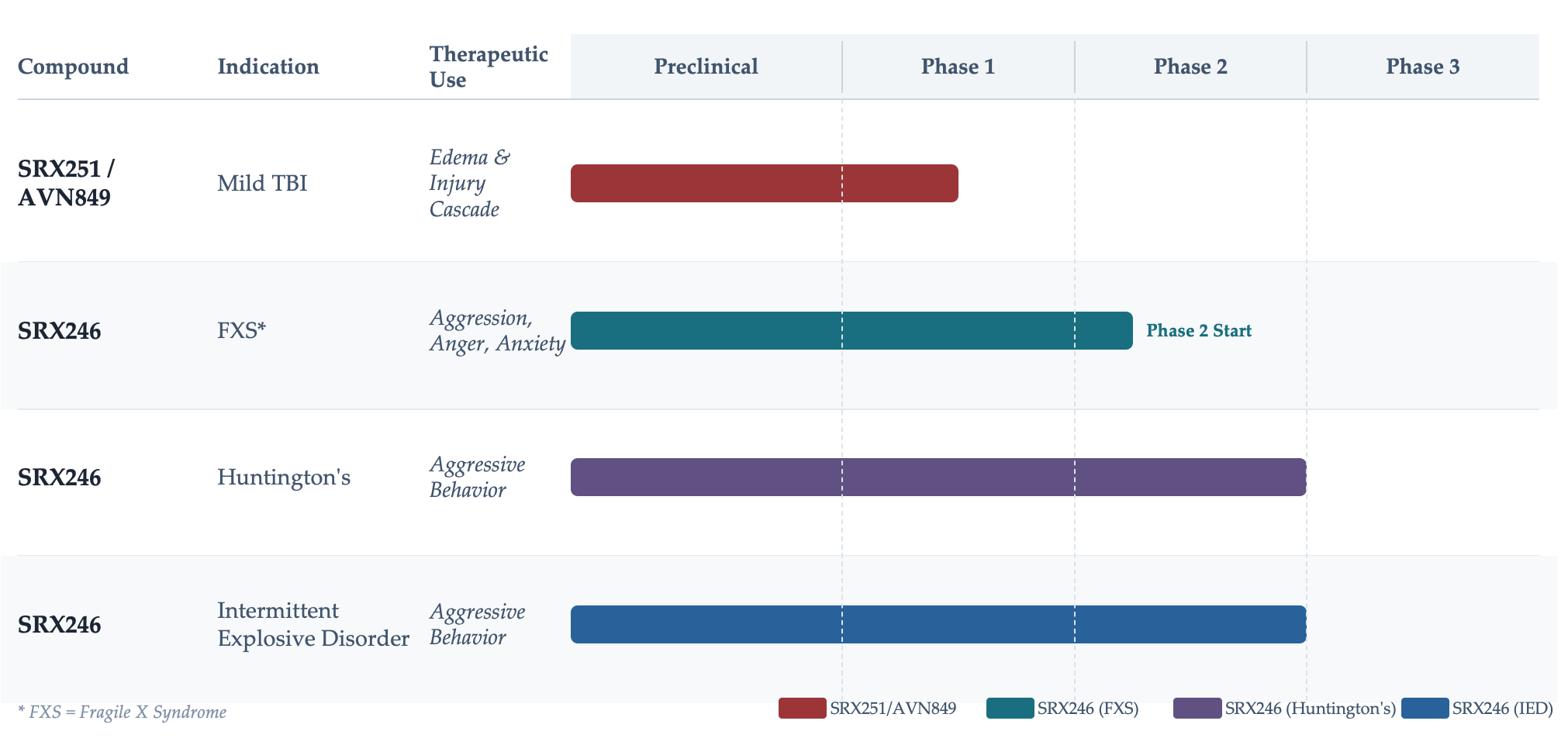
TECHNOLOGY
&
PIPELINE
Azevan is developing drugs that block the effects of arginine vasopressin (AVP), a naturally occurring chemical released as a neurotransmitter in the brain and as a neurohormone in the blood stream. A body of evidence has demonstrated that AVP plays a substantive role in neurobiology, particularly in the response to chronic stress and in circuits that are dysregulated in affective disorders and in neurological insults like traumatic brain injury (TBI) and stroke.
AVP exerts its effects on physiology and behavior by binding to specific G protein-coupled receptors in the central nervous system and certain peripheral tissues/sites. Three distinct AVP receptor subtypes have been identified — V1a (or V1), V1b (or V3), and V2. V1a is the predominant AVP receptor found throughout the limbic system and cortex of the brain, while the V1b receptor is also located in limbic system and the pituitary gland. The V1a receptor also is expressed in the smooth muscle of blood vessels, uterus, and heart muscle.
This distribution of receptors is consistent with the central role of AVP signaling in the physiology of several stress-related psychiatric disorders and conditions like TBI. V2 receptors are located on the collecting ducts of nephrons in the kidney and have been a target for therapeutic approaches to the treatment of cardiovascular conditions.
Given the biological spectrum of AVP effects and its multiple receptors, it is not surprising to find that AVP has a causal or secondary role in a host of conditions. The scientific community and pharmaceutical industry have shown robust effects with AVP antagonists in animal studies and translational medicine investigations in models of several disorders, including inappropriate aggression, PTSD, anxiety, major depression, and traumatic brain injury.

